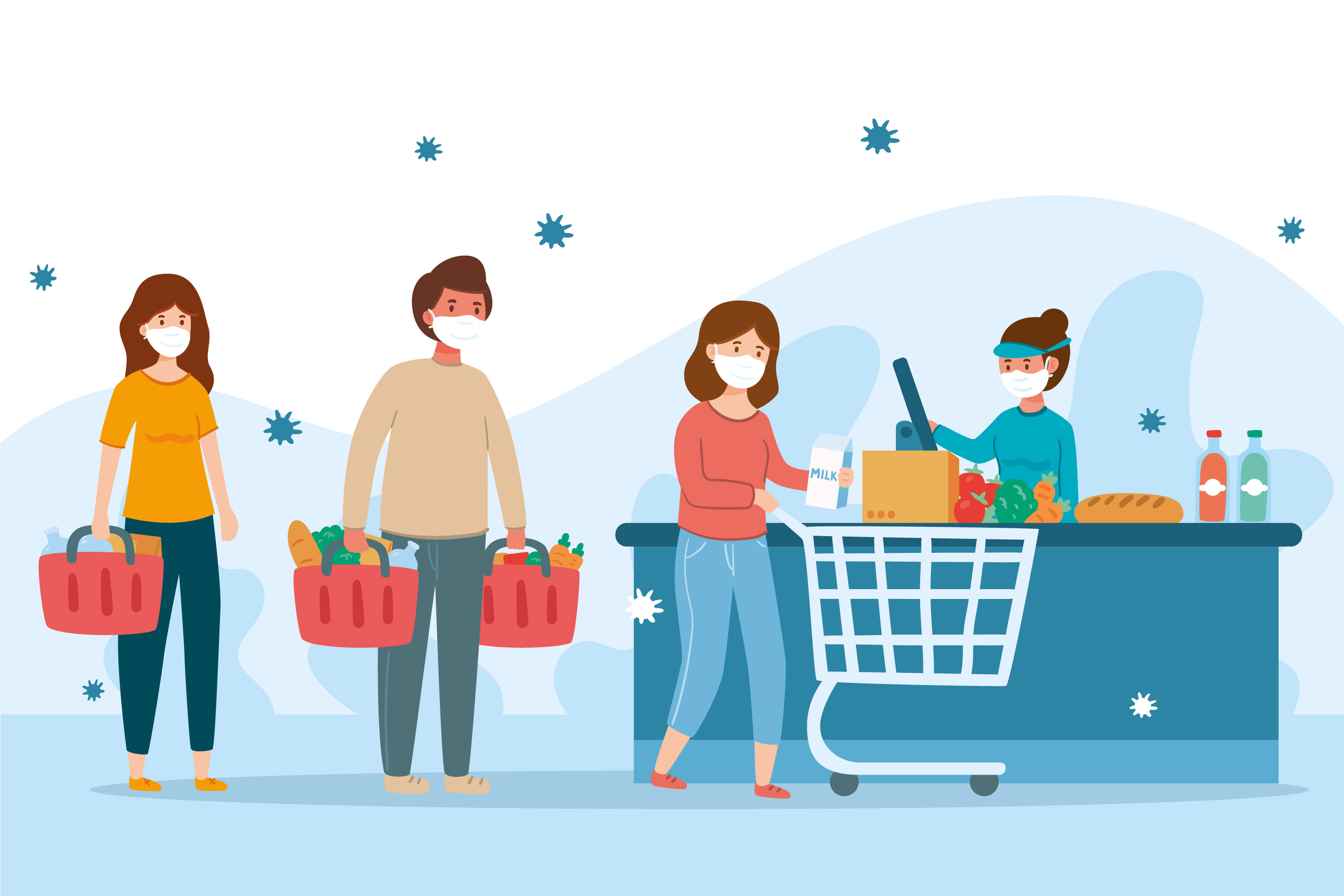How Your POS Can Combat 3 Major COVID-19 Disruptions to the Food Industry
Is your POS set up to grant you success or to doom you during the coronavirus?

Contents
- COVID-19 Disruption 1: Low Supply of Workers
- How POS Systems Can Help You Operate with Fewer Staff
- COVID-19 Disruption 2: Changing Customer Habits
- Your POS' CRM, Analytics and delivery Lets Your Business Keep Track of Shifting Customer Trends
- COVID-19 Disruption 3: Stock is sitting unused
- POS Inventory Tracking Can Reduce Wastage
- Use POS Tech to Your Advantage
COVID-19 Disruption 1: Low Supply of Workers
The COVID-19 virus has created a strange dichotomy within the F&B industry whereby businesses have had to let staff go for financial reasons and cannot get enough staff due to social distancing measures. In many countries around the world, though staff are ready to work, "self-isolation and social distancing guidelines are reportedly slowing picking efforts in places, and national lockdowns are disrupting the usual international flow of labour across the industry."

How POS Systems Can Help You Operate with Fewer Staff
With the correct POS system powering your restaurant, there are many steps that can be taken to operate efficiently while having fewer staff members. The modern POS system contains many new features such as table management, queue management and CRM management that not only boost staff efficiency, but negate the need to carry out menial tasks and minimize errors. These benefits, in turn, reduce staff workload and can help your business operate with fewer staff.
In addition, many POS systems can work in tandem with modules and third-party companies to push automation through self-service kiosks, mobile ordering, BYOD technology, web ordering and shifting between dine-in and delivery modes. This type of flexibility is key in letting customers have the power to place their own orders, which reduces the need to have staff that would have traditionally performed those services.

COVID-19 Disruption 2: Changing Customer Habits
As the virus continued to run its course, we are seeing changing customer habits based on a variety of unforeseeable factors. For example, "according to new data, cited by BFMTV, French shoppers have increasingly been buying more organic food since coronavirus fears took hold of the country." We are also seeing an influx of people shopping at smaller, local stores, which experts suggest is "because people want to eat more healthy and local food during the outbreak."
Another figure to highlight how consumers have evolved to display new buying habits can be seen in the US. After the spread of COVID-19, "US sales of orange juice, which had been on a gradual decline, are said to be up 38% on last year's figures."
In markets like Asia, we are seeing that people are opting to still buy from F&B busineses, but are opting to purchase food via delivery rather than dine-in. In places like Hong Kong, delivery businesses have reported sharp sales increases. For example, "Deliveroo has recorded a 60 per cent increase in order volume, month-on-month, in January, with the pace of growth dramatically accelerating in early days of February."

Your POS' CRM, Analytics and delivery Lets Your Business Keep Track of Shifting Customer Trends
Tapping into your POS' customer relationship management (CRM) offerings will let you keep abreast of the latest customer trends and will ensure you can stay on top of what customers are buying and which products are selling well. By tracking valuable customer data, you can spot new trends and purchasing habits relating to the Coronavirus and tailor your menu accordingly. For example, you may find that healthier food options are selling better and can start pushing out discounts or specials based around these new trends.
Aside from looking at customer data, you should also use your POS to take a look at your sales data. Item sales numbers can also help identify which products are a hit with customers. Spotting trends early can give you a leg up on competitors who will only be able to react to trends rather than take advantage of them. You will also be able to scale back on purchasing ingredients for items that are not selling as well due to shifting trends.
Finally, your POS should support shifting to a delivery-based model, or offer some sort of integration with online ordering features. This will allow you to diversity your business and increase your revenue streams, which in turn, helps to keep up with greater demand for delivery-based food orders.

COVID-19 Disruption 3: Stock is sitting unused
Since the numbers of customers visiting F&B establishments is down in just about every global market, it stands to reason that inventory often goes unused. "Take UK pub closures for example. Much of the industry's current supply of lager and ale could now go to waste under government rules which mean they could be closed for the foreseeable future."
Many beers have a best-by date of mere weeks, which means "thousands of unused barrels in pub basements could be undrinkable by the time the lockdown is lifted."
While it may be impossible to offset the initial amount of food wastage from when the virus first hit, it is imperative to manage inventories well given that margins for many F&B businesses are shrinking.
POS Inventory Tracking Can Reduce Wastage
Now that the industry has changed, inventory tracking lets you obtain a robust picture of which items are being used quickly and which items sit around. You can accurately stock up on popular items while buying less supply of items that are not being used as fast. This saves costs and reduces food waste.
Use POS Tech to Your Advantage
Tech is your ally in these uncertain times. Use your POS to bolster staff performance, keep on top of new customer trends and manage your inventory. Oftentimes, tightening up and saving in many small areas can lead to a large saving at the end of the day. With a modern and robust POS system, you will have all the tools at your fingertips to combat the negative effects the Coronavirus is having on the F&B industry. There's never been a better time to rely on your POS tech to evolve your business so that you can see through these tough times and do even better in the future.